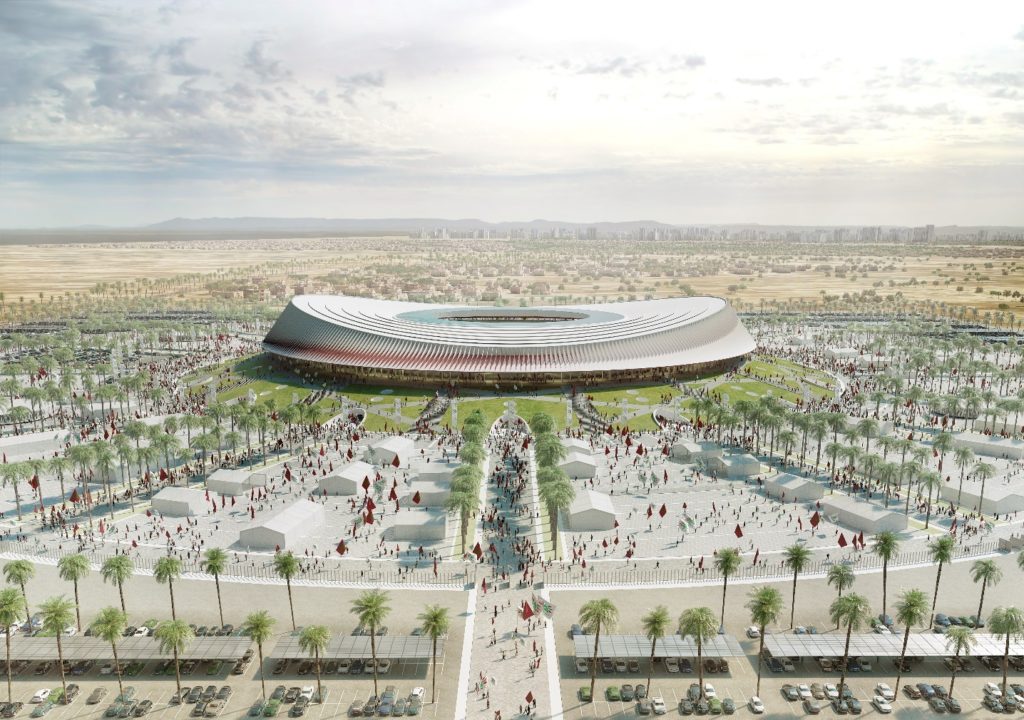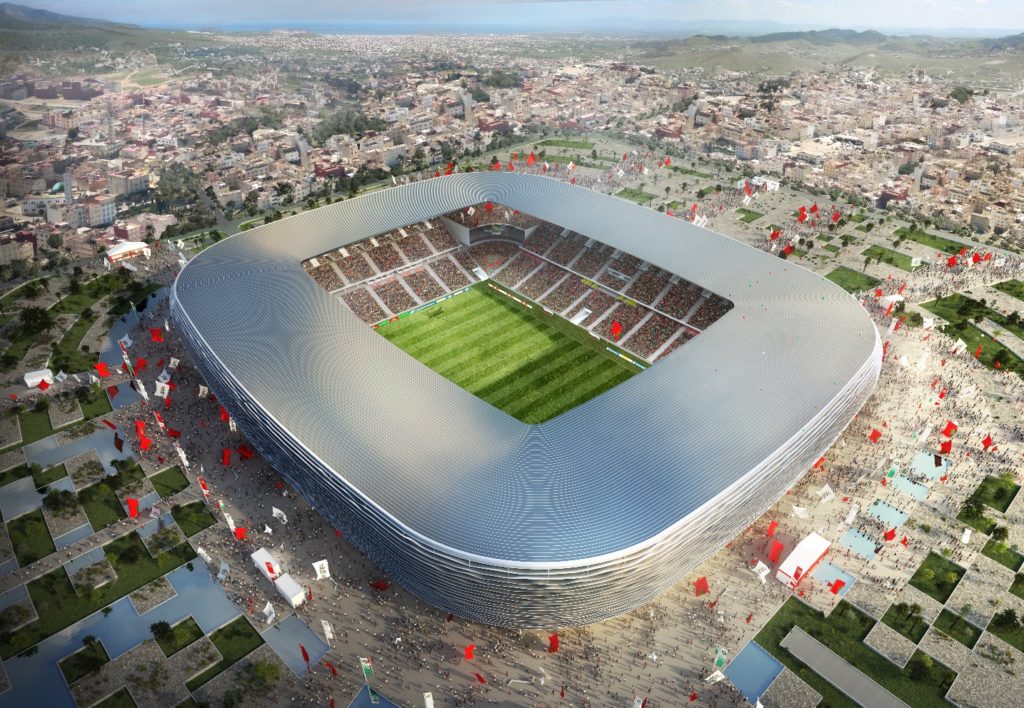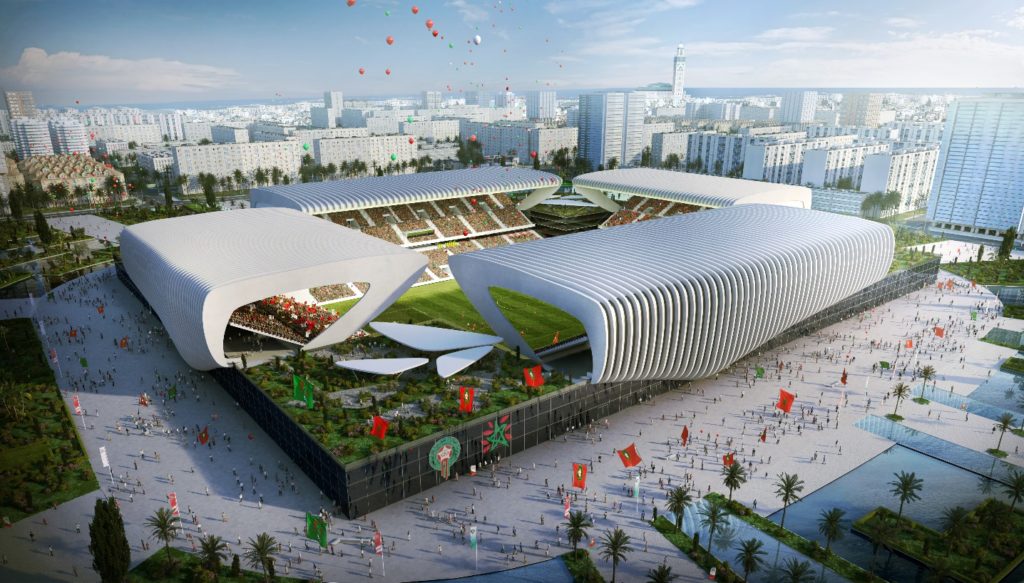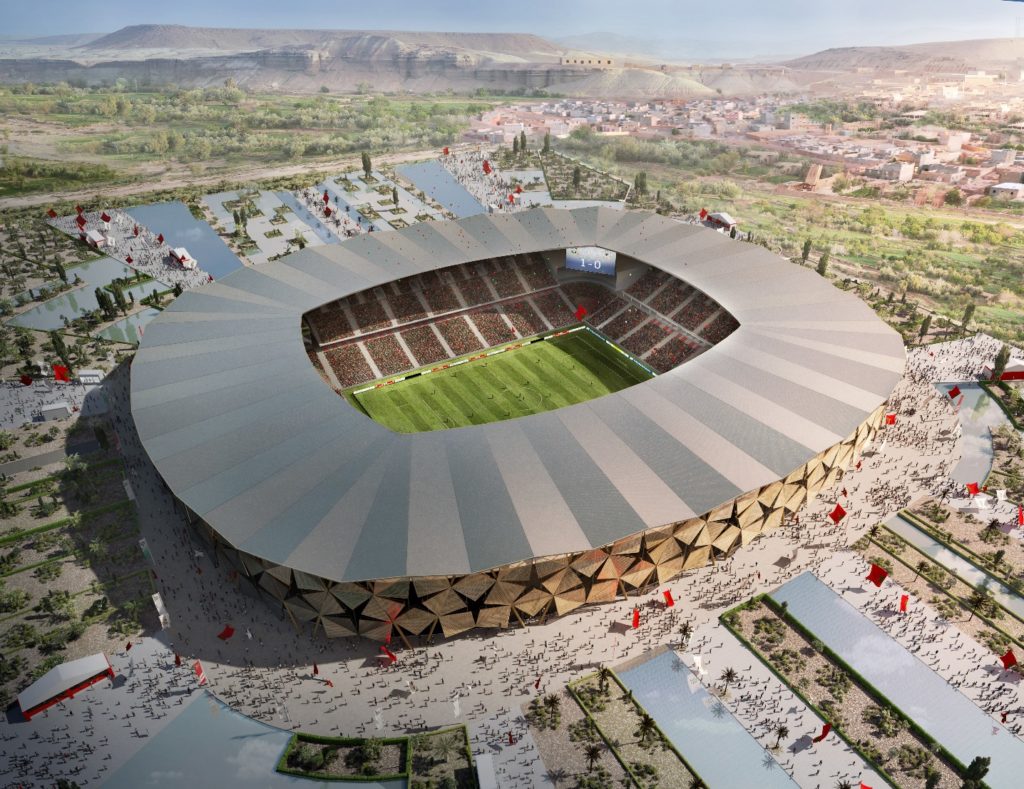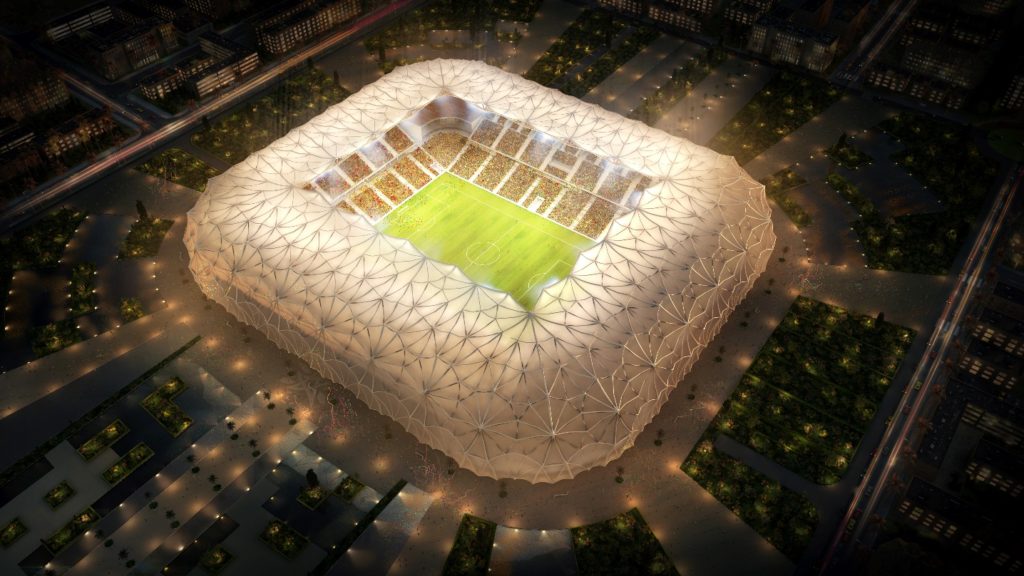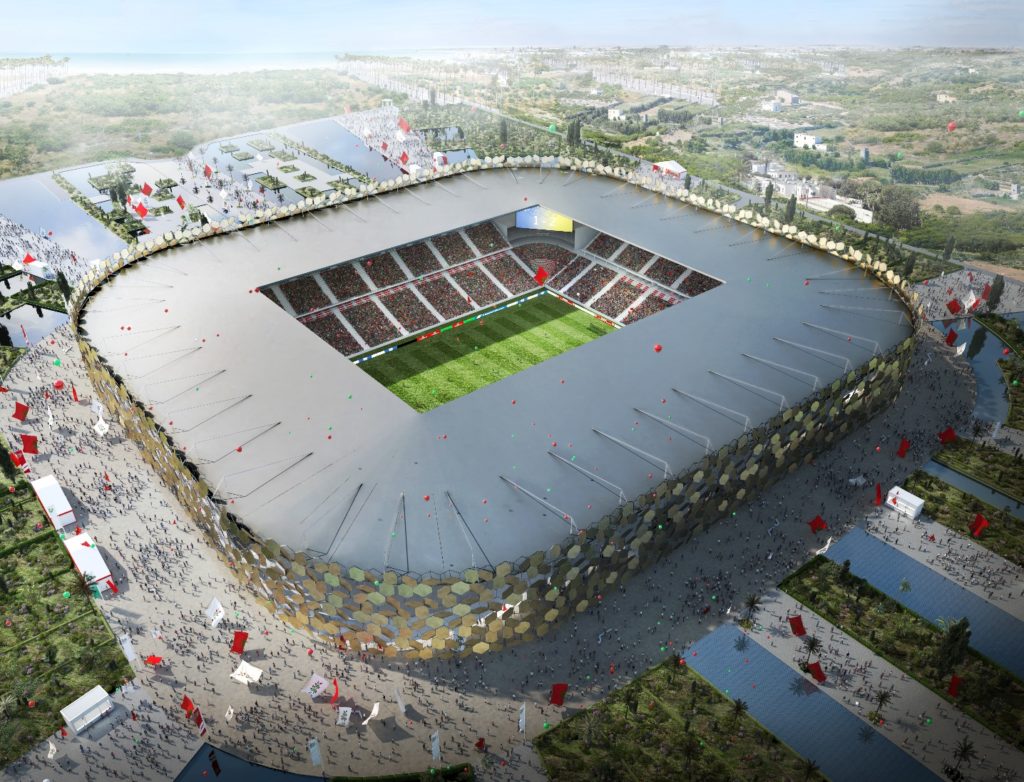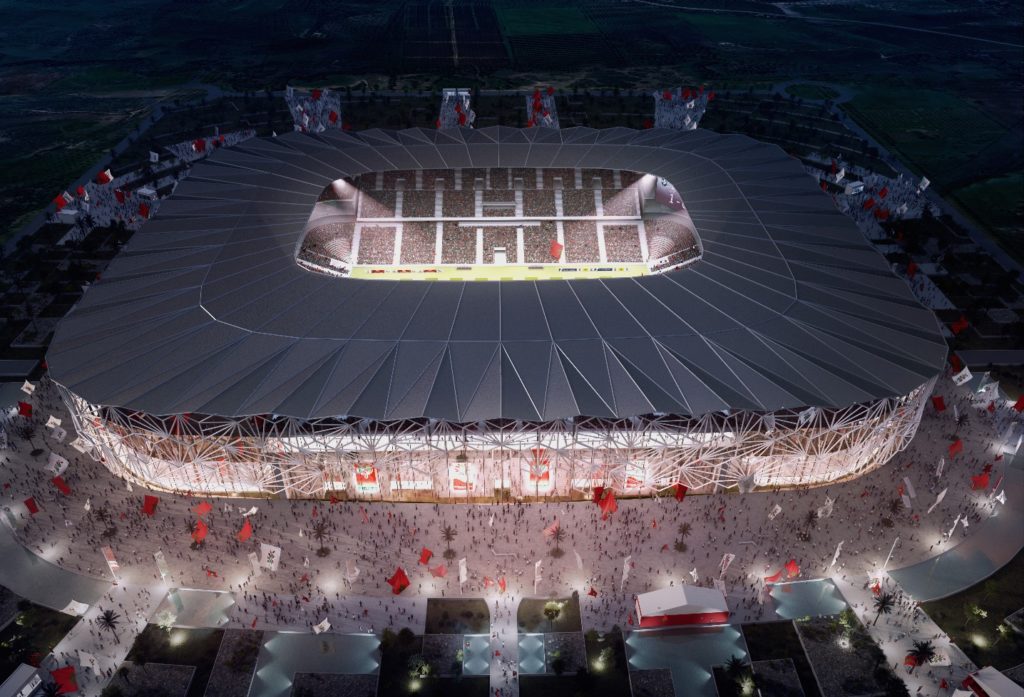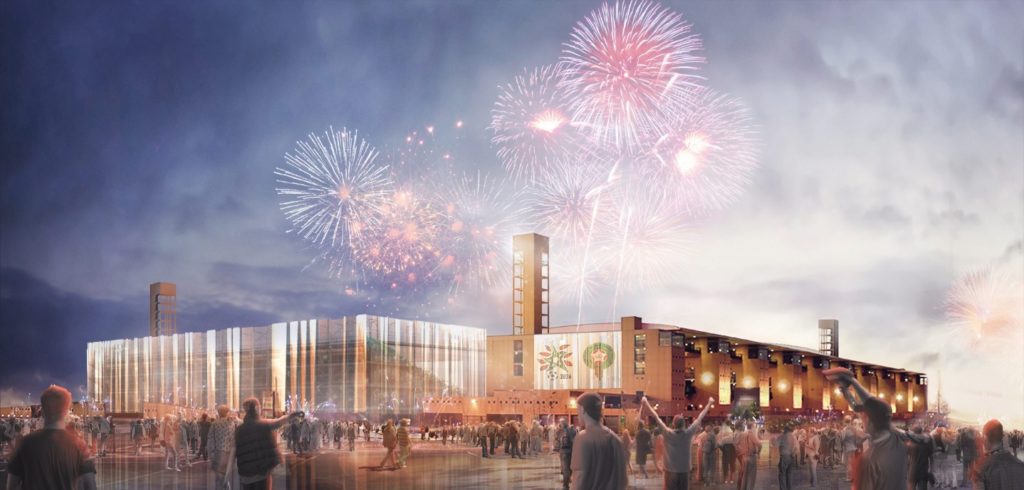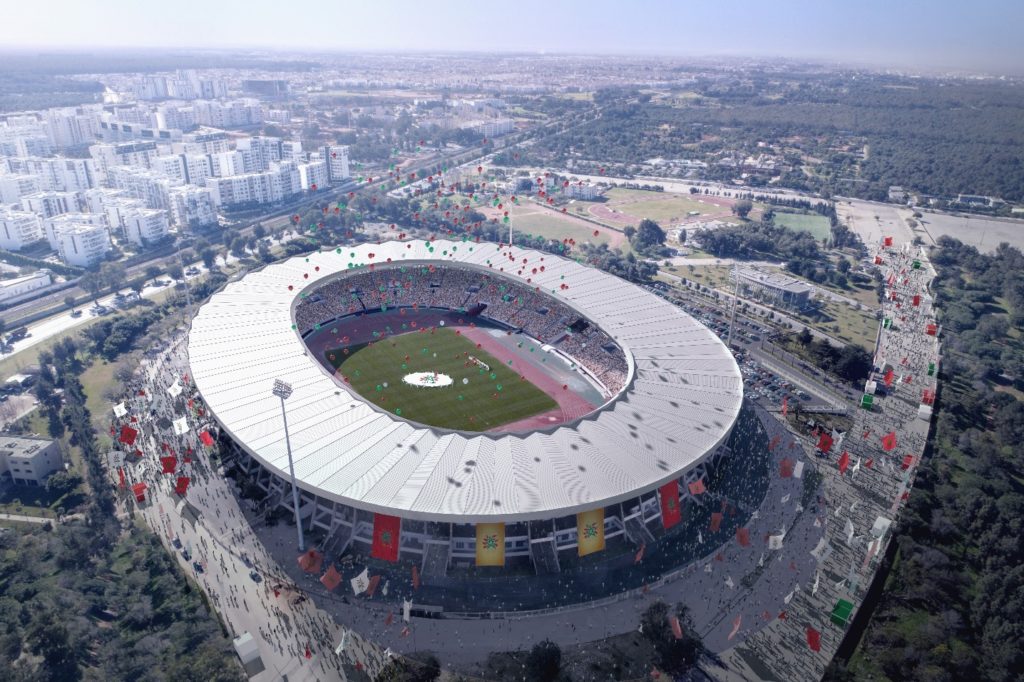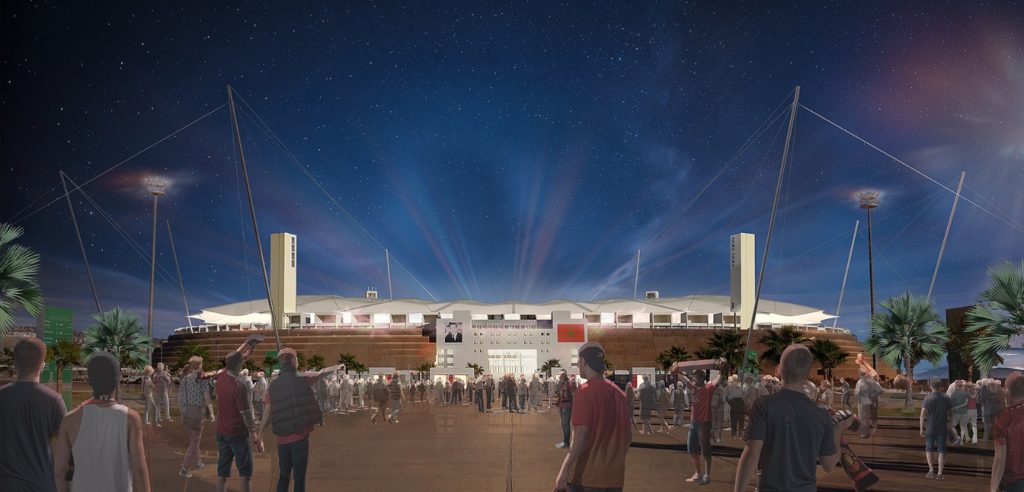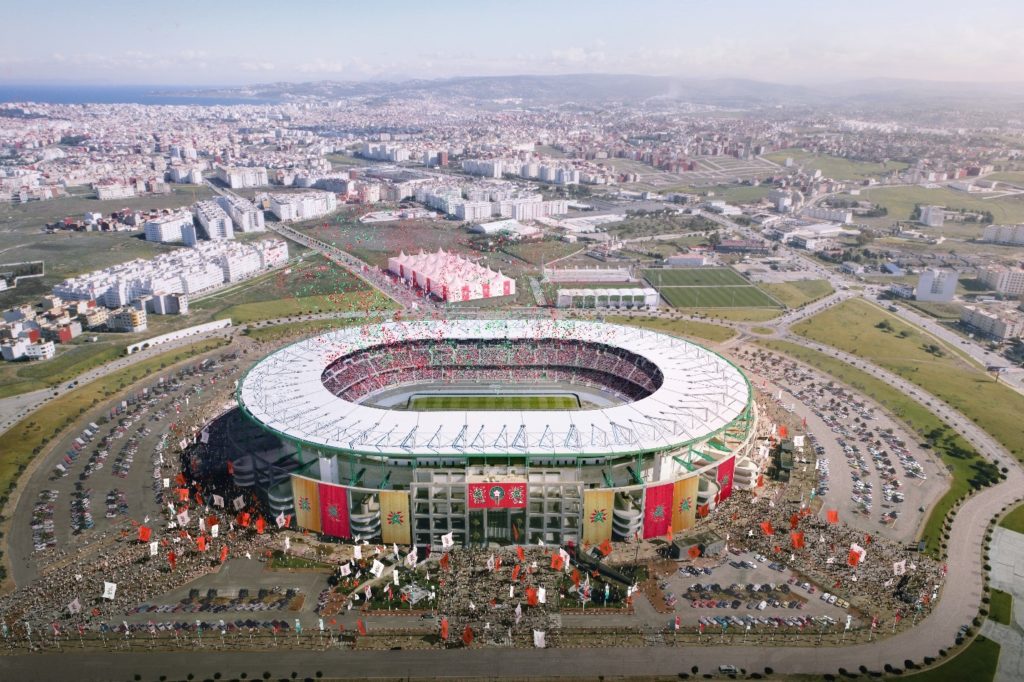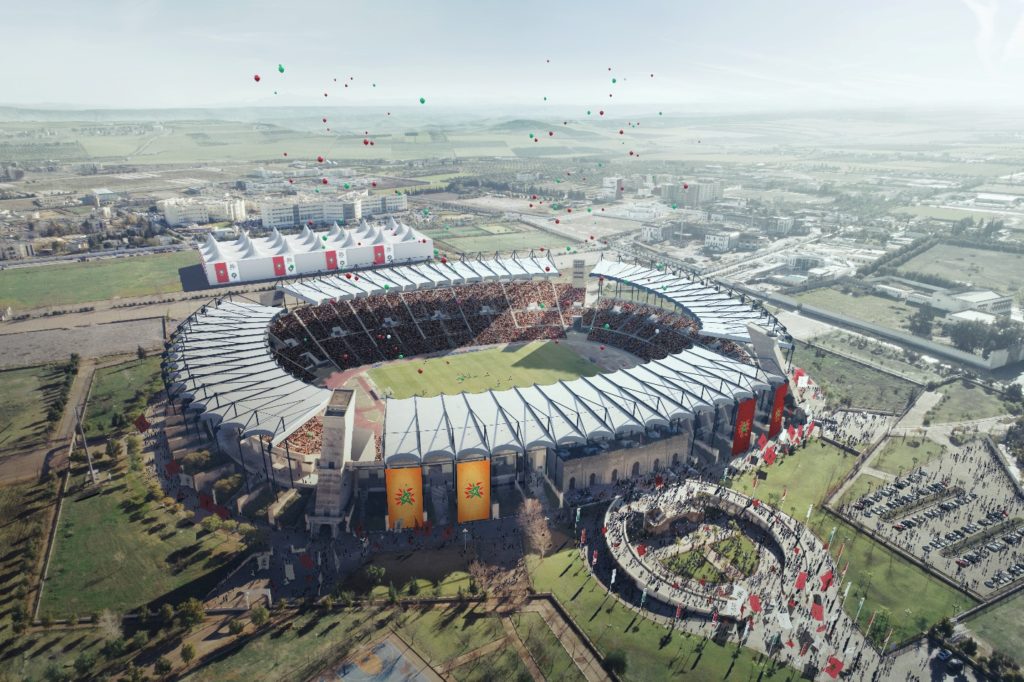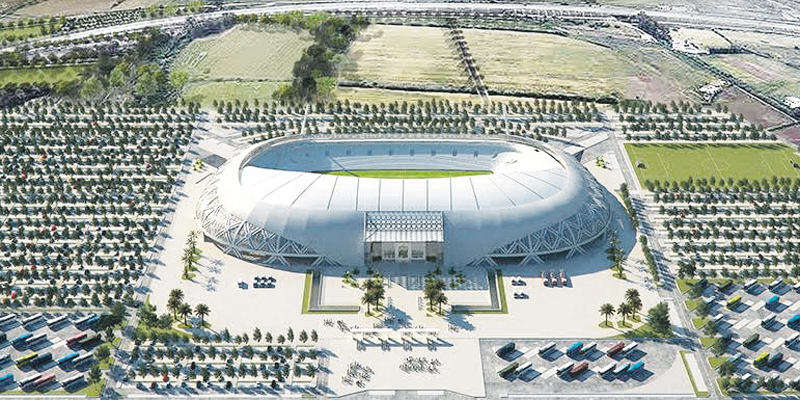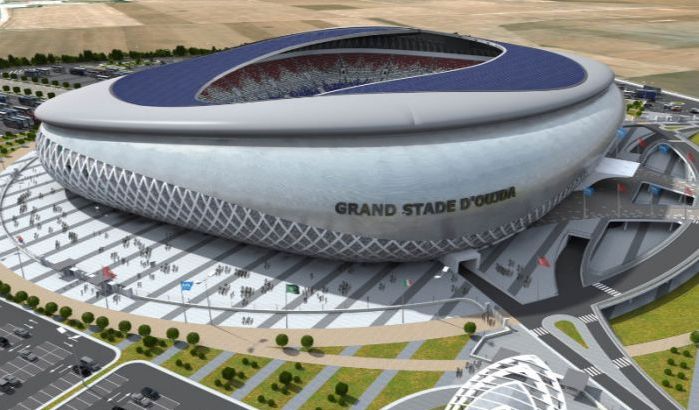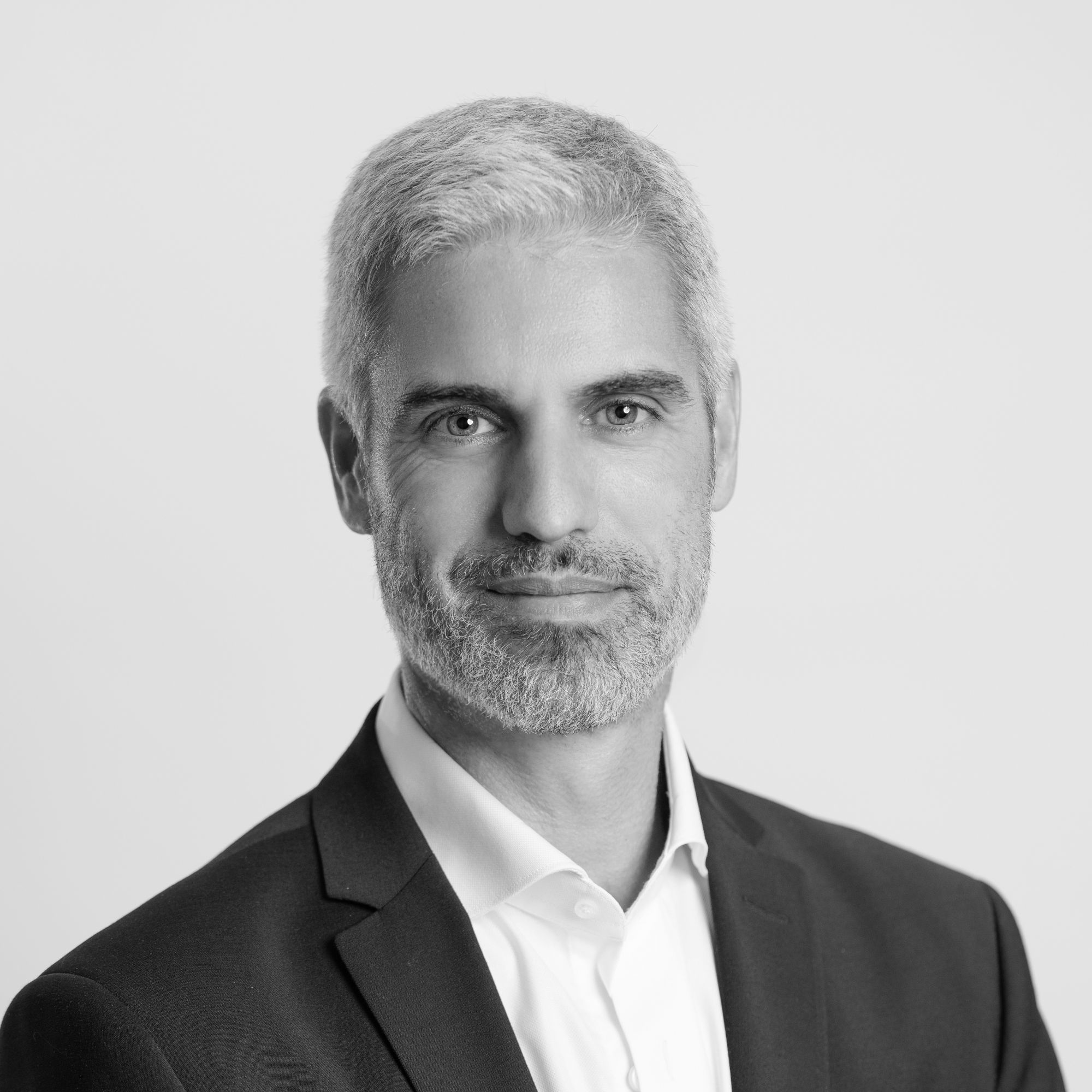- Home
- EN
- Kardham Group
- News
The agency participates in the candidacy of Morocco for the Fifa World Cup 2026
June 2018
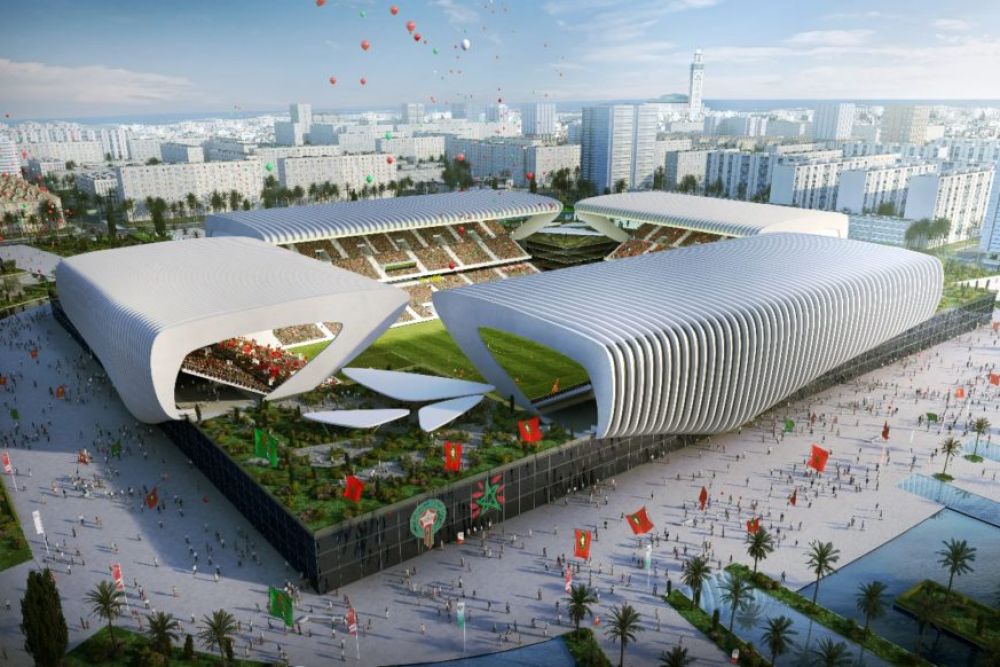
MKTG France has been chosen by the Royal Moroccan Football Federation (FRMF) to assist it with the preparation of its bid for the 2026 FIFA World Cup. Within this framework, the Kardham Architecture agency was appointed for the architectural design of the stadiums.
World Cup 2026
On 13 June 2018, on the eve of the 21st edition of the World Cup to be held in Russia from 14 June to 15 July 2018, FIFA’s 211 member associations will meet to vote and elect the 2026 World Cup host. Two bids are in the running to become the host country: Morocco and the Canada-Mexico-United States triptych.
Morocco’s bid
The Task Force, a committee appointed by FIFA to evaluate the bids, has confirmed that the project put forward by Morocco complies with the requirements set out for the organisation of this first 48-team World Cup.
Stadium design entrusted to Kardham Architecture
Kardham Architecture has developed an extensive programme that includes 14 stadiums with a capacity of 45,000 to 95,000: adaptation of 7 existing infrastructures of the Kingdom (Agadir, Fez, Marrakech, Tangier, Rabat, Oujda, Tetouan) and construction of 7 new stadiums including 6 modular ones (El Jadida, Meknes, Nador, Ouarzazate, Marrakech (+1), Casablanca), and the big stadium of Casablanca for the final in association with the Spanish agency Cruz y Ortiz Arquitectos.
A revolutionary concept of modular stadiums: Legacy Modular Stadium
In order to meet the need to build new stadiums to host the World Cup, the bid proposed a pioneering modular stadium system, in line with FIFA’s requirements in terms of sustainability. This architectural concept was designed by Kardham Architecture in collaboration with Caroline Costedoat and Verdi Ingénierie on the guidelines of MKGT.
See the modular stadium presentation video
“Architecture is often the meeting point of social, urban and economic issues. But rarely does it occur with as much intensity as in this project. A football world cup is the convergence of all passions and pressures… To be part of this bid, the agency had to take up a major challenge in record time. Of course, it’s not a question of building oversized infrastructures for a single event that are destined to die out inexorably, often dragging down national finances. The Olympic Games in Brazil were a sad example of this. We therefore put all our energy and experience into creating a stadium concept that would allow the hosting of a world event in compliance with all FIFA rules, while also ensuring a second life on the scale of real local needs. The squaring of the football! Pending the final result, all Kardham teams are behind the beautiful footballing nation of Morocco.” David Habrias, President of Kardham Architecture.
7 new stadiums designed by Kardham Architecture including 6 in the Legacy Modular Stadium concept
Legacy Modular Stadium: one stadium, six identities.
The customization of the facades reflects the identity of each host city.
7 stades rénovés par Kardham Cardete Huet Architecture

